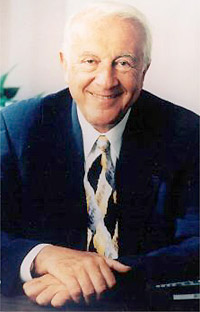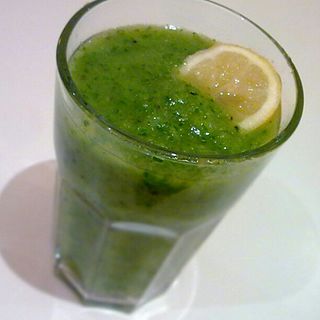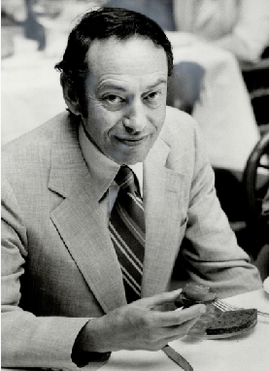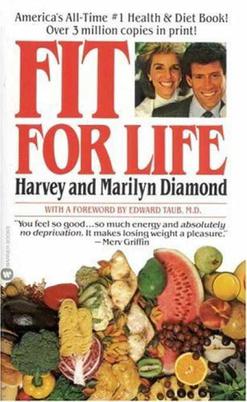
The Atkins diet is a low-carbohydrate fad diet devised by Robert Atkins in the 1970s, marketed with claims that carbohydrate restriction is crucial to weight loss and that the diet offered "a high calorie way to stay thin forever".

Robert Coleman Atkins was an American physician and cardiologist, best known for the Atkins Diet, which requires close control of carbohydrate consumption and emphasizes protein and fat as the primary sources of dietary calories in addition to a controlled number of carbohydrates from vegetables.

Joel Fuhrman is an American celebrity doctor who advocates a plant-based diet termed the "nutritarian" diet which emphasizes nutrient-dense foods. His practice is based on his nutrition-based approach to obesity and chronic disease, as well as promoting his products and books. He has written books promoting his dietary approaches including the bestsellers Eat to Live, Super Immunity, The Eat to Live Cookbook, The End of Dieting (2016) and The End of Heart Disease (2016). He sells a related line of nutrition-related products.

The Scarsdale diet, a high-protein low-carbohydrate fad diet designed for weight loss, created in the 1970s by Herman Tarnower and named for the town in New York where he practiced cardiology, is described in the book The Complete Scarsdale Medical Diet Plus Dr. Tarnower's Lifetime Keep-Slim Program. Tarnower wrote the book together with self-help author Samm Sinclair Baker.

A fad diet is a diet that is popular, generally only for a short time, similar to fads in fashion, without being a standard scientific dietary recommendation, and often making unreasonable claims for fast weight loss or health improvements; as such it is often considered a type of pseudoscientific diet. Fad diets are usually not supported by clinical research and their health recommendations are not peer-reviewed, thus they often make unsubstantiated statements about health and disease.
The Zone diet is a fad diet emphasizing low-carbohydrate consumption. It was created by Barry Sears, an American biochemist.

Low-carbohydrate diets restrict carbohydrate consumption relative to the average diet. Foods high in carbohydrates are limited, and replaced with foods containing a higher percentage of fat and protein, as well as low carbohydrate foods.

A high-protein diet is a diet in which 20% or more of the total daily calories come from protein. Many high protein diets are high in saturated fat and restrict intake of carbohydrates.

A healthy diet is a diet that maintains or improves overall health. A healthy diet provides the body with essential nutrition: fluid, macronutrients such as protein, micronutrients such as vitamins, and adequate fibre and food energy.
The Cambridge Diet was a very-low-calorie meal replacement fad diet developed in the 1960s. The diet launched with different versions in the US and the UK. The US version filed for bankruptcy and shut down shortly after the deaths of several dieters. The UK diet has also been known as the Cambridge Weight Plan, but is now known as The 1:1 Diet.

The Grapefruit diet is a short-term fad diet that has existed in the United States since at least the 1930s. There are variations on the diet, although it generally consists of eating one grapefruit at each meal, along with meat, eggs, other foods that are rich in fat and protein, and certain vegetables. Sugar, fruits, sweet vegetables, grains and starchy vegetables are to be avoided. The grapefruit diet is thus a low-carbohydrate diet. A typical breakfast menu usually includes bacon and eggs. The diet is based on the claim that grapefruit has a fat-burning enzyme or similar property. The grapefruit diet does not require exercise. The grapefruit diet lasts for 10 to 12 days followed by 2 days off.

Dean Michael Ornish is an American physician and researcher. He is the president and founder of the nonprofit Preventive Medicine Research Institute in Sausalito, California, and a Clinical Professor of Medicine at the University of California, San Francisco. The author of Dr. Dean Ornish's Program for Reversing Heart Disease,Eat More, Weigh Less and The Spectrum, he is an advocate for using diet and lifestyle changes to treat and prevent heart disease.

A very-low-calorie diet (VLCD), also known as semistarvation diet and crash diet, is a type of diet with very or extremely low daily food energy consumption. VLCDs are defined as a diet of 800 kilocalories (3,300 kJ) per day or less. Modern medically supervised VLCDs use total meal replacements, with regulated formulations in Europe and Canada which contain the recommended daily requirements for vitamins, minerals, trace elements, fatty acids, protein and electrolyte balance. Carbohydrates may be entirely absent, or substituted for a portion of the protein; this choice has important metabolic effects. Medically supervised VLCDs have specific therapeutic applications for rapid weight loss, such as in morbid obesity or before a bariatric surgery, using formulated, nutritionally complete liquid meals containing 800 kilocalories or less per day for a maximum of 12 weeks.

Gary Taubes is an American journalist, writer, and low-carbohydrate / high-fat (LCHF) diet advocate. His central claim is that carbohydrates, especially sugar and high-fructose corn syrup, overstimulate the secretion of insulin, causing the body to store fat in fat cells and the liver, and that it is primarily a high level of dietary carbohydrate consumption that accounts for obesity and other metabolic syndrome conditions. He is the author of Nobel Dreams (1987); Bad Science: The Short Life and Weird Times of Cold Fusion (1993); Good Calories, Bad Calories (2007), titled The Diet Delusion (2008) in the UK and Australia; Why We Get Fat: And What to Do About It (2010); The Case Against Sugar (2016); and The Case for Keto: Rethinking Weight Control and the Science and Practice of Low-Carb/High-Fat Eating (2020). Taubes's work often goes against accepted scientific, governmental, and popular tenets such as that obesity is caused by eating too much and exercising too little and that excessive consumption of fat, especially saturated fat in animal products, leads to cardiovascular disease.

Nathan Pritikin was an American inventor, engineer, nutritionist and longevity researcher. He promoted the Pritikin diet, a high-carbohydrate low-fat plant-based diet combined with regular aerobic exercise to prevent cardiovascular disease. The Pritikin diet emphasizes the consumption of legumes, whole grains, fresh fruit and vegetables and non-fat dairy products with small amounts of lean meat, fowl and fish.

Fit for Life is a diet and lifestyle book series stemming from the principles of orthopathy. It is promoted mainly by the American writers Harvey and Marilyn Diamond. The Fit for Life book series describes a fad diet which specifies eating only fruit in the morning, eating predominantly "live" and "high-water-content" food, and, if animal protein is eaten, avoiding combining it with complex carbohydrates.
The South Beach Diet is a popular fad diet developed by Arthur Agatston and promoted in his bestselling 2003 book. It emphasizes eating food with a low glycemic index, and categorizes carbohydrates and fats as "good" or "bad". Like other fad diets, it may have elements which are generally recognized as sensible, but it promises benefits not backed by supporting evidence or sound science.

Protein Power is a high-protein, low carbohydrate fad diet developed by physician Michael R. Eades and his wife Mary Dan Eades.

Carlson Wade was an American alternative health writer who authored many books promoting detoxification, fasting, juicing, megavitamin therapy, natural foods and raw food dieting. He developed a fad diet known as the Enzyme-Catalyst Diet.
















